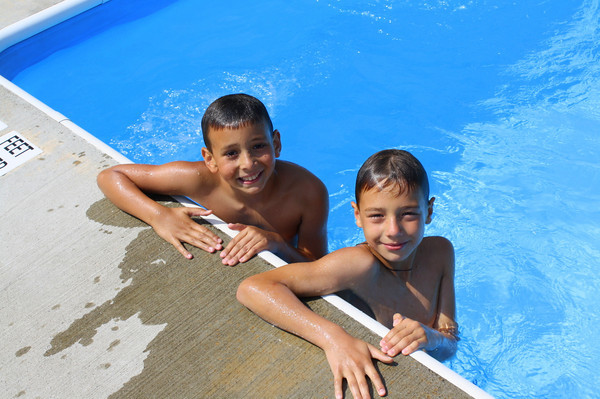Great Time To Be Outdoors
It’s the perfect time of year to be outdoors. To get outside and take a walk, a hike, a bike ride, or just explore nature. A strong body of research confirms that direct contact with nature leads to better psychological well being, improved cognitive functioning, and fewer physical ailments. The American Academy of Pediatrics recommends children get at least one hour of outdoor play every day. However, according to the Kaiser Family Foundation, the average child spends about 7.5 hours – outside of school- indoors using electronic devices. With more demands on our time and an increase in technology, it can be a challenge to find the time to connect with nature. Richard Louv, author of “Lost Child in the Woods”, coined the term “nature-deficit disorder”. Louv says that children growing up today are deprived from the many healing elements found within nature.
One area that is trying to increase the time children spend in nature is the Chicago Wilderness Alliance. Every year they celebrate June as “Leave No Child Inside” month. Chicago Wilderness and its member organizations plan large collaborative events and family-friendly programs – like bird watching, catch and release fishing, and playing in the mud- designed to nurture a child’s sense of wonder and discovery.
 Rachel and Stephen Kaplan, environmental psychologists from the University of Michigan, would most certainly support the efforts of the Chicago Wilderness Alliance. These psychologists are known for their extensive research on the effects of nature on people’s relationships and health, and have discovered that one remedy for mental fatigue and increased stress is exposure to nature.
Rachel and Stephen Kaplan, environmental psychologists from the University of Michigan, would most certainly support the efforts of the Chicago Wilderness Alliance. These psychologists are known for their extensive research on the effects of nature on people’s relationships and health, and have discovered that one remedy for mental fatigue and increased stress is exposure to nature. Here are some of the benefits of more time in nature for children:
1. Children have better social relationships: Research has found that children who play in nature have more positive feelings about each other, and can even reduce or eliminate bullying.
2. Physical health is improved: Being outside strengthens immunity and improves motor fitness, coordination, balance, and agility.
3. Better cognitive development: Spending time in natural environments helps improve focus, concentration, reasoning and observational skills.
4. Improved imagination: Studies show that children are more likely to use their imagination and creativity outdoors.
5. Reduces stress: Nature has a calming element and cushions the impact of life stressors and helps children better deal with adversity.
 In addition, children who spend time outdoors are more likely to appreciate, love, and protect the environment. We see firsthand the benefits of spending time in nature every summer at camp. Our campers connect with nature by having fun at the waterfront, helping out in the vegetable garden, mountain biking, horseback riding around the lake, and going on an overnight camping trip. It is truly amazing how calming the outdoors at camp can be and how it connects us to one another.
In addition, children who spend time outdoors are more likely to appreciate, love, and protect the environment. We see firsthand the benefits of spending time in nature every summer at camp. Our campers connect with nature by having fun at the waterfront, helping out in the vegetable garden, mountain biking, horseback riding around the lake, and going on an overnight camping trip. It is truly amazing how calming the outdoors at camp can be and how it connects us to one another. “Study nature, love nature, stay close to nature. It will never fail you”, Frank Lloyd Wright.
“One touch of nature makes the whole world kin”, William Shakespeare.

